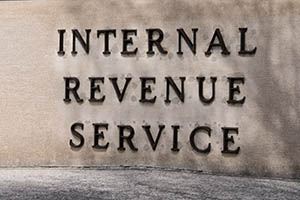The federal penalties for failing to pay taxes are severe. Tax evasion is a felony under the U.S.Code, and conviction can lead to a sentence of up to five years and a fine of up to $100,000 for an individual (five times that amount for a business).To add insult to injury, the government can also tack on the costs connected with trying the case in court.
But what constitutes “tax evasion?”
To begin with, we need to distinguish between tax avoidance and tax evasion. Tax avoidance describes a legal means to protect income and assets. It encompasses methods such as charitable contributions or participation in certain retirement savings plans.
Tax evasion, on the other hand, is illegal. The IRS divides tax evasion into two subcategories: evasion of assessment and evasion of payment.
- Evasion of assessment refers to attempts to fool the IRS into thinking that you do not owe as much as you really do. Typically, this behavior manifests itself in efforts to not declare income or to claim deductions and credits to which you are not entitled. Examples include filing false tax returns, concealing sources of income, keeping false bookkeeping records and unlawfully destroying financial records.
- Evasion of payment means an illegal attempt to hide funds and assets from which your tax obligations can be paid. This can result from things like transferring money into accounts held by relatives or friends or transferring taxable assets under the names of others. If its main purpose is to try to avoid paying taxes, even the otherwise legal act of declaring bankruptcy can be a form of tax evasion under this definition.
The IRS has dealt with many individuals’ attempts to use creative means to argue against accusations of tax evasion; it has taken an attitude of “we’ve heard it all before” to the point where it has prepared a guide for tax defense attorneys specifically illustrating arguments that do not work.
This is not to say, however, that there are not plausible and reasonable defenses that you can raise if the IRS accuses you of tax evasion. What you need in such an event is a law firm that not only has experience defending tax cases, but one that is also savvy enough not to fall into the trap of arguments guaranteed to fail in court.


Leave A Comment